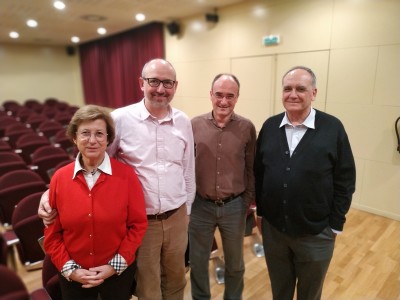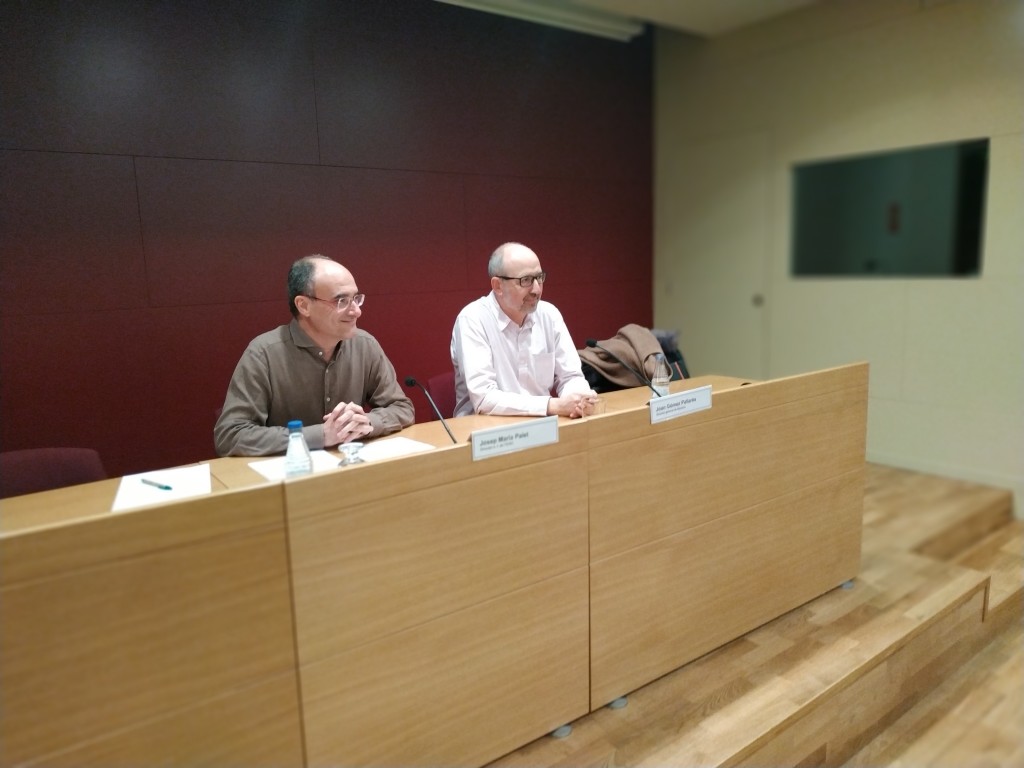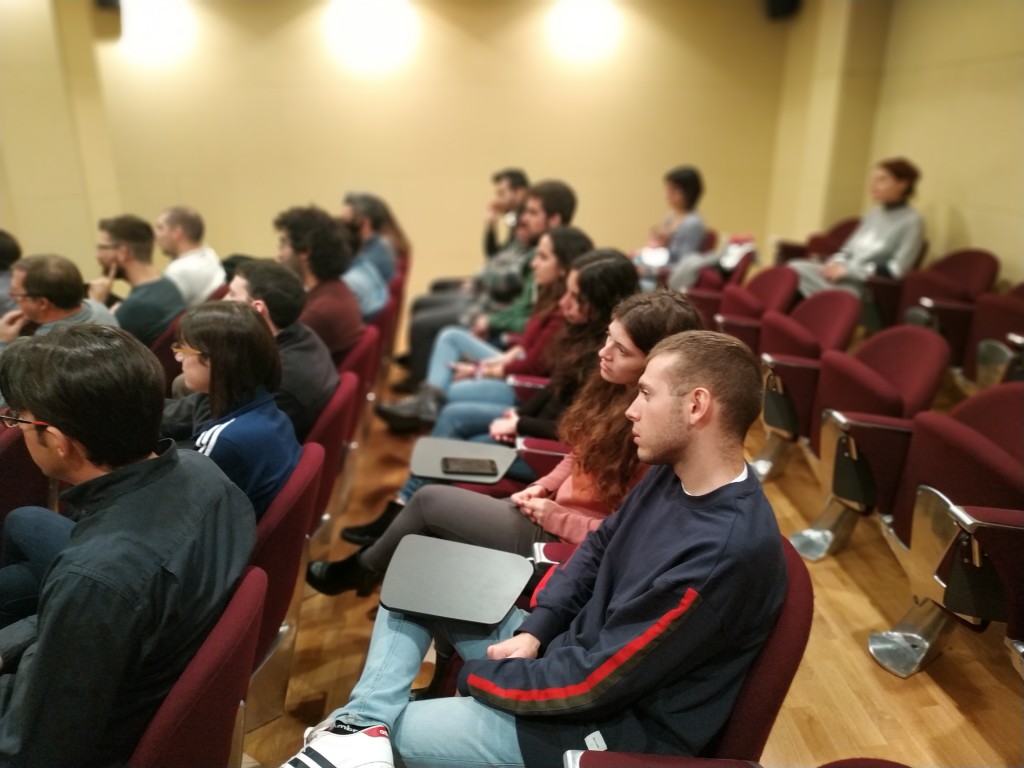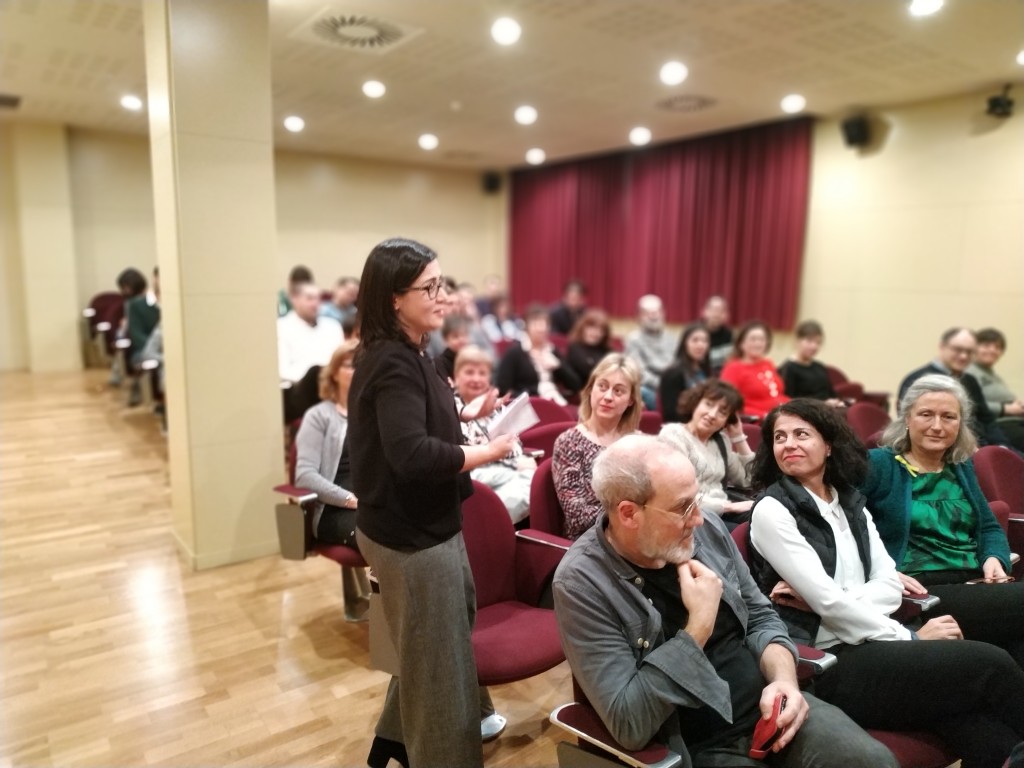

On December 19, the ICAC received the official visit of the Director-General for Research of the Catalan Government, Mr Joan Gómez Pallarès.
It was an important day in which, in addition to receiving a visit to such a relevant position -an event that had not occurred since 2011-, the Institute celebrated its 15th anniversary and gave special recognition to the first two directors of the centre: Josep Guitart (2002-2006) and Isabel Rodà (2007-2012), which begin a new stage, retirement, released from the day-to-day academic pressure.
In the first part of the event, acting director Josep Maria Palet introduced Joan Gómez, who spoke of his relationship with Tarragona, with the Roman world and with the ICAC, which he managed for five years. Gómez confirmed the relevance of the study of antiquity and the commitment to explain this legacy of humanity to society and to the civilization that welcomes us nowadays.
In this sense, Gómez referred to the on-going collaboration process between the ICAC, the IPHES and the ICRP, which will give strength to these knowledge and transfer aims, both from a scientific and social point of view.
It was a very emotional speech with mentions to personal and professional experiences shared with the ICAC and its people. Gómez also stressed how unusual is the fact of giving the responsibility of a research DG to a professional profile linked to classical philology. And, he took advantage of this reference to highlight the humanities and their contribution to science and society in general.


In the second part of the event, Josep Maria Palet reviewed the history of the Institute, on the occasion of the celebration of its 15th anniversary. The centre was put into operation, in its current headquarters, in 2003. The initiative of the Catalan Government responded to the desire to do research that has an impact on scientific knowledge but also on society and on citizens’ welfare.
Since the institutional event featured the presence of all the directors the ICAC has had, Josep Maria Palet defined the Institute development according to the direction of each one of them. Thus, he placed the foundational stage between 2002 and 2006, under the direction of Josep Guitart, who opted especially for the recruitment of young researchers and the promotion of a research career. Specific lines of research and activities began to run, related to the map of the study of archaeology and antiquity in Catalonia.
Then, in 2007 began the consolidation stage, under the direction of Isabel Rodà. From this stage, Palet highlighted, on one hand, the international projection of the centre, which became evident, among other things, with the involvement of the ICAC in the organization of different international congresses and with the participation of its researchers in high relevance scientific activities and events. On the other hand, Palet also highlighted the acquisition of funding programs that allowed the ICAC to promote research around the Mediterranean, as well as the creation of new research positions.
2013 was a key year. The ICAC celebrated its tenth anniversary and there was a change of direction, with the arrival of Joan Gómez as the third director of the Institute. Also, it was the first time that the ICAC had to overcome an external public evaluation, which was the CERCA evaluation. Besides, the MIRMED Research Group is approved (and financed), which allowed the Institute to coordinate its research activity with other research centres and a very wide network of national and international researchers. The ICAC reached a very important presence in the set of heritage interventions in Catalonia.


The acting director enhanced the legacy of the strategic actions on promoting advanced training and of the Tarragona factor (or how the Institute is linked to the city and the local community). As an example, he mentioned the forthcoming project Rambla Science, a future centre for the dissemination and knowledge transfer led by the URV and the four main research centres with a presence in Tarragona (ICAC, IPHES, ICIQ, IISPV) together with the City Council of Tarragona.
In summary, the ICAC begins this new period with the arrival of new pre- and postdoctoral researchers, the return of some researchers through talent acquisition programs, and the incorporation of new management and research support staff.
The most emotive part of the event came with the acknowledgement of the two first directors of the ICAC, Josep Guitart and Isabel Rodà. Both Josep Maria Palet and Joan Gómez addressed warm words to them and gathered different anecdotes that defined the personalities of each one.
Some interventions were also made from the public. First, Ramón y Cajal researcher Anna Gutiérrez spoke to Isabel Rodà, thesis supervisor and mentor in her research training at the ICAC. Then it was the turn of the researcher Esther Rodrigo, who addressed his words to Josep Guitart, in the same sense. There were many smiles and many emotions in an audience that congratulated and thanked the former directors of the ICAC for the work done, at the same time that warm support was given to the new acting director in the stage that he now starts.







